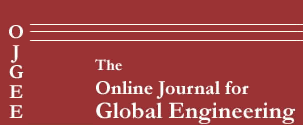Engineering Students’ Perception of Academic Dishonesty at an American University in the Middle East
Abstract
This study surveys engineering students’ perception of academic integrity at a private American university in the Middle East. The survey included questions on plagiarism, inappropriate collaboration, cheating on exams, copyright violations, and complicity in academic dishonesty. The study showed that more than one-third of the students were not aware that the university has a student academic integrity code. The gender appears to affect the students’ perception of academic dishonesty, as the female students perceived more frequent cheating than males. Also, about 10% of the female students, compared to about 30% of the male students, see no relationship between morality and academic integrity. The main reason why students cheat was because they had little time to do the work without seeking unauthorized help and because they perceive cheating as a form of collaborative work. Students believed that one of the most effective ways in reducing incidences of academic dishonesty is using more proctors during exams.
Erratum
This article has been republished with the correct introduction.
Recommended Citation
Abdelfatah, Akmal S. and Tabsh, Sami W.
(2010)
"Engineering Students’ Perception of Academic Dishonesty at an American University in the Middle East,"
Online Journal for Global Engineering Education:
Vol. 5:
Iss.
1, Article 1.
Available at:
https://digitalcommons.uri.edu/ojgee/vol5/iss1/1
